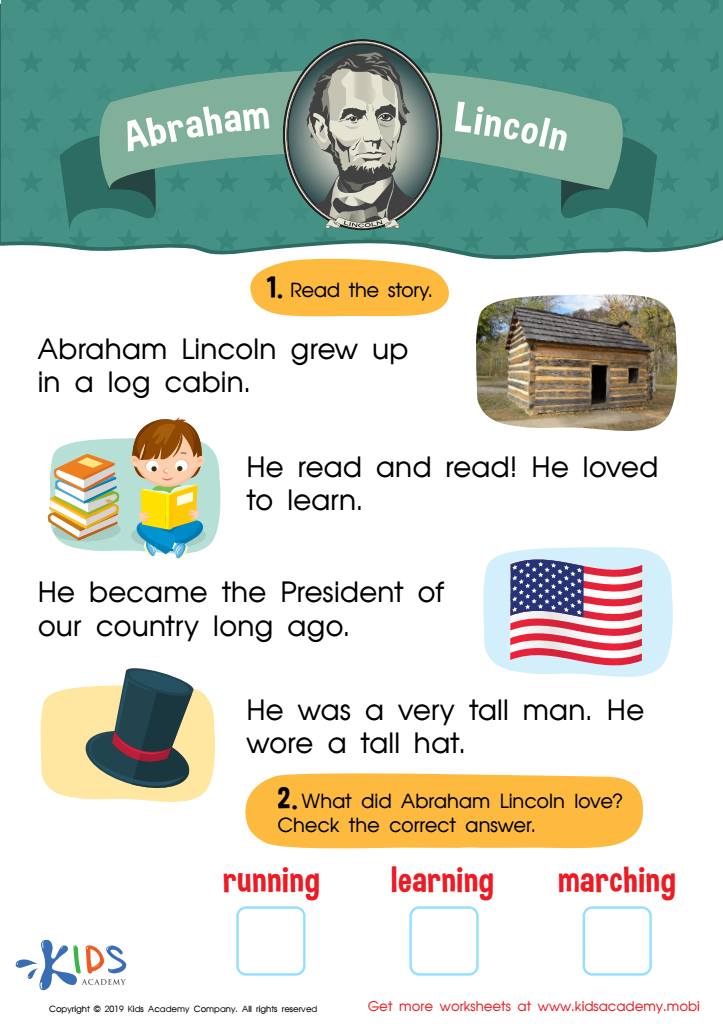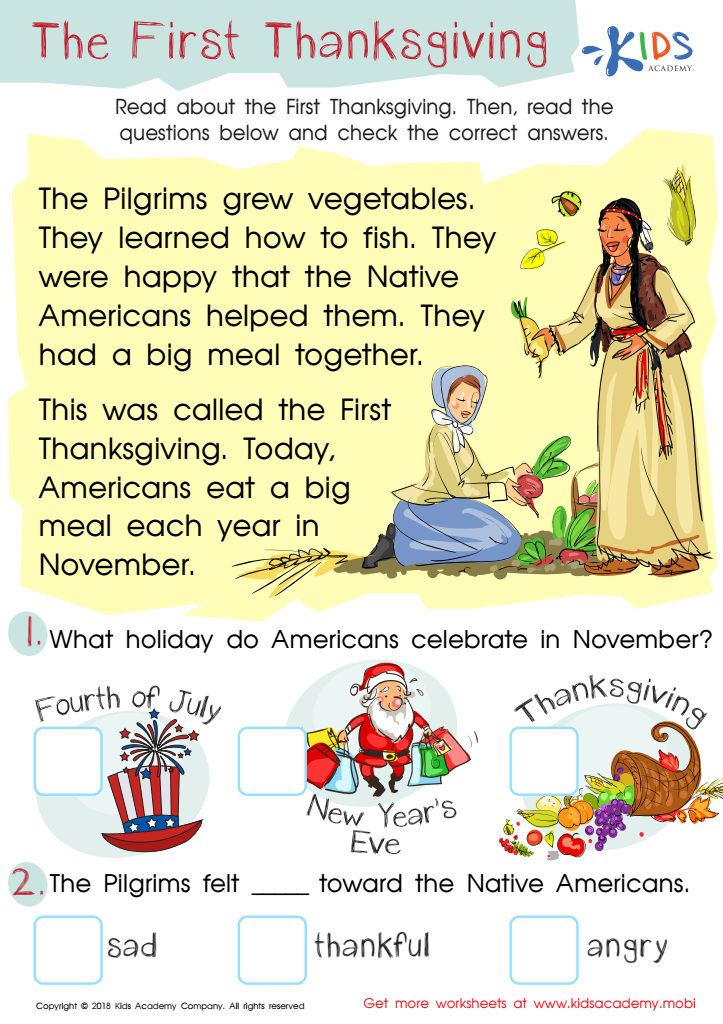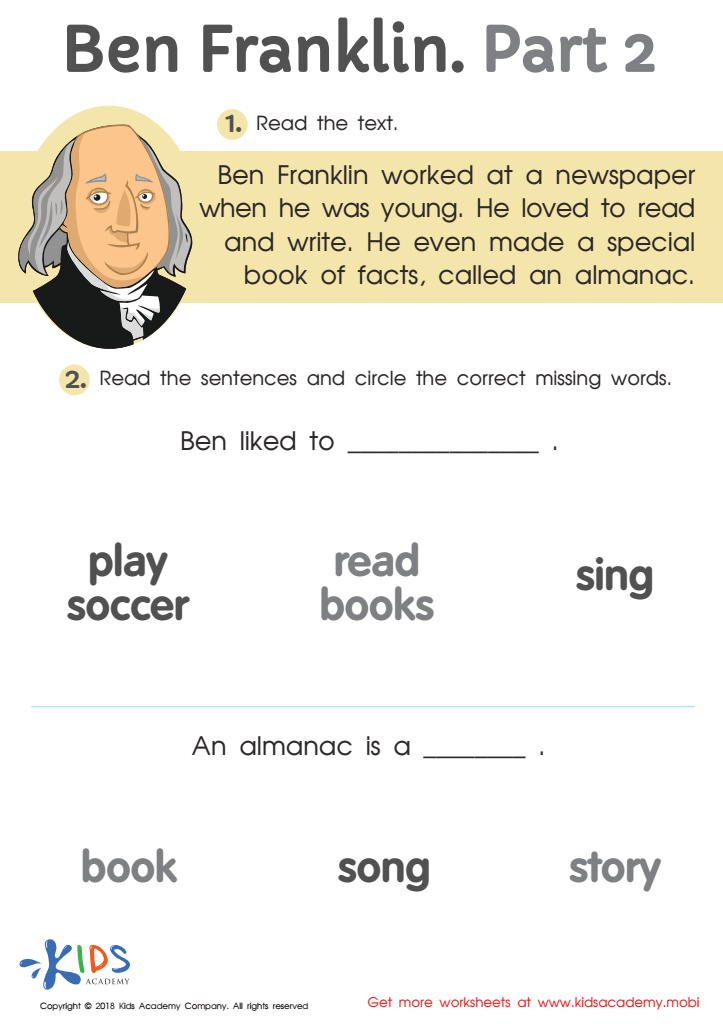Historical Knowledge Reading Comprehension Worksheets for Ages 6-8
5 filtered results
-
From - To
Explore our engaging Historical Knowledge Reading Comprehension Worksheets designed for children aged 6-8! These educational resources introduce young learners to fascinating historical events, notable figures, and significant cultures through age-appropriate texts. Each worksheet is crafted to enhance reading skills while promoting critical thinking and contextual understanding. Accompanied by fun questions and activities, they encourage kids to reflect on what they read and relate history to their lives. Perfect for classrooms or at-home learning, our worksheets make history enjoyable and accessible. Foster a love for learning and curiosity about the past with our thoughtfully created comprehension materials today!


White House Worksheet


Benjamin Franklin Worksheet


Abraham Lincoln Worksheet


Assessment: First Thanksgiving Worksheet


Ben Franklin Part 2 Worksheet
Historical knowledge reading comprehension is crucial for children aged 6-8 as it lays the foundation for their understanding of the world and its complexities. At this developmental stage, children are naturally curious about their surroundings. Introducing them to historical narratives encourages critical thinking, context understanding, and foster a sense of identity. These reading experiences allow young learners to connect past events with present circumstances, fostering empathy and awareness of different cultures and perspectives.
Moreover, reading comprehension skills are essential for academic success across subjects, not just in history. By engaging with historical texts, children practice extracting main ideas, making inferences, and analyzing characters' motivations. These skills transfer to other areas of learning, promoting overall literacy development.
Parents and teachers play a pivotal role in nurturing these skills. By fostering an appreciation for history through interactive reading, discussions, and storytelling, they can help children develop the ability to ask questions and think critically. As children grow, these competencies will equip them to navigate an increasingly complex global society, making informed decisions and contributing positively to their communities. Thus, prioritizing historical knowledge in early education ultimately supports children's cognitive and emotional growth.
 Assign to My Students
Assign to My Students

















